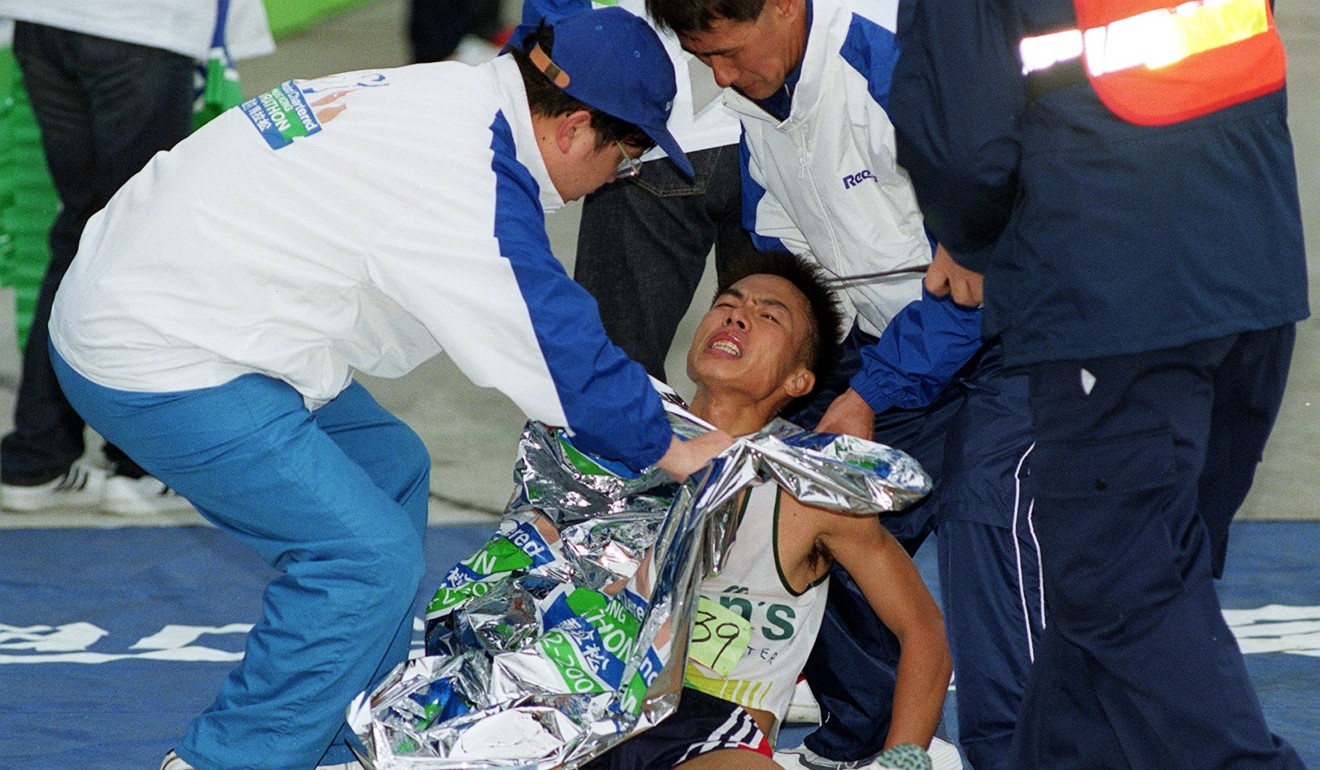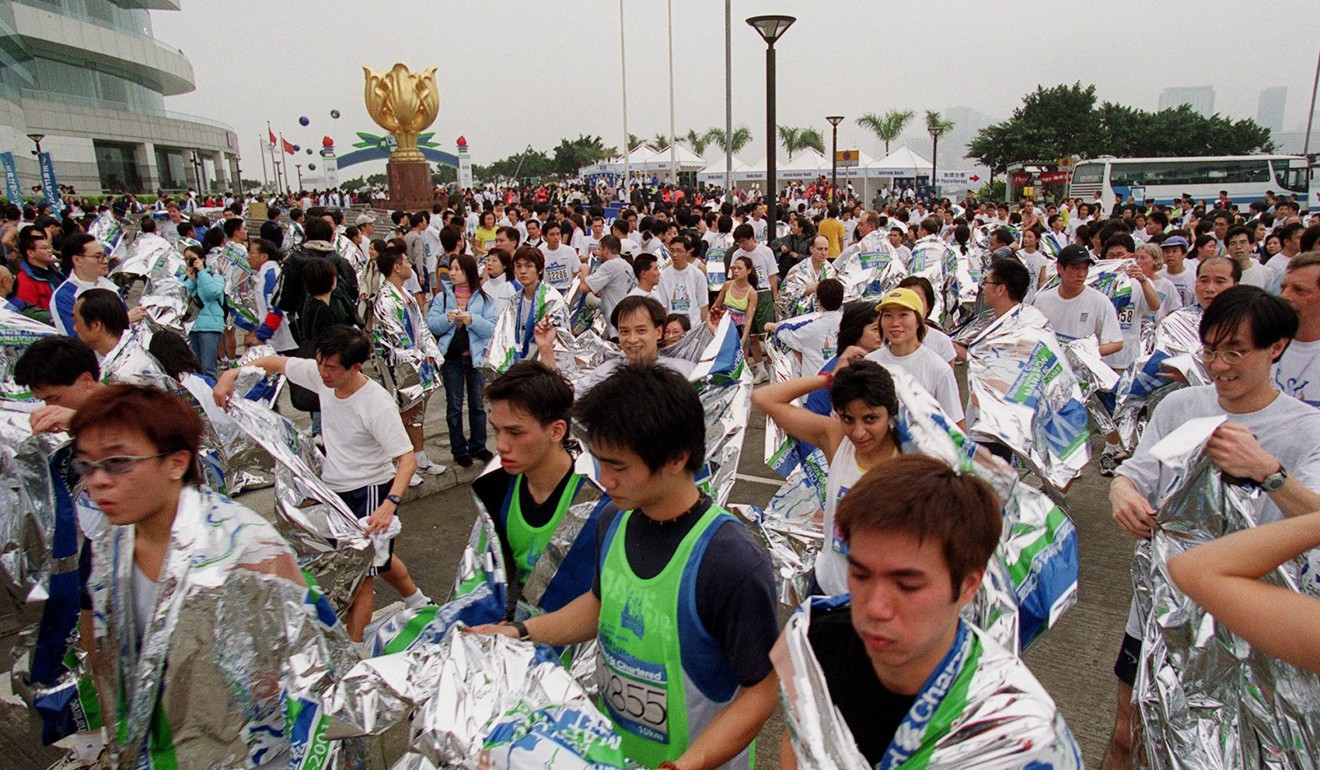
Sports scientist warns 74,000 Hong Kong Marathon runners to ‘slow down’ as temperatures and fears of heatstroke rise
Humidity also a concern as participants told that increasing water consumption might not be enough to counter weather
A leading sports scientist gave a stern warning to the 74,000 participants in Sunday’s Standard Chartered Hong Kong Marathon with high temperatures and high humidity forecast for race day.
The Hong Kong Observatory expects a temperature between 17 to 21 degree Celsius with a relative humidity of 70 to 90 per cent when the annual event starts early in the morning.
The 42.195km marathon (18,500 entries) and 21.09km half marathon (20,500) start in Tsim Sha Tsui, while the 10k races (35,000) will be on Hong Kong Island.
Another 4,000 people will participate in a youth dash, family run and two wheelchair races (3km and 10km). All races finish in Victoria Park.
Raymond So Chi-hung, an exercise physiologist and director of elite training science and technology at the Hong Kong Sports Institute in Fo Tan, said running under such conditions would be “risky”, especially for many of the ordinary runners.
“Many of them have done training over the past few weeks but it was under cold conditions as Hong Kong has been quite cold recently,” said So.

“The temperaturehas increased in the past few days and it will be difficult for them to acclimatise in time when they run in the heat during the race.
“If that happens, runners may suffer heat sicknesses such as heat exhaustion and heatstroke which will be very dangerous.”
Two more first aid stations will be set up from last year, bringing the number to 42, while there will be 10 ambulances and four motorcycle paramedics along the route, with over 800 medical staff on duty.
One marathon participant, Christine Leung Fung-yee, said she would take on more water during the 42.195 kilometre race to deal with the high temperatures, but So said it might not work.
“The main problem is acclimatisation and if you cannot adapt to the change of environment well, you cannot sweat well.
“As a result, your body core temperature will increase and this may lead to some serious consequences.”

The sports science expert recommended the participants “lower their pace” if they have to run under hot conditions on Sunday.
“Do not attempt to run the pace you did during training as the conditions have changed,” he said.
The change in conditions will not effect the elite runners, according to So, as these athletes have done high intensity training and their body can easily acclimatise.
Organisers also paid attention to the change of weather conditions.
William Ko Wai-lam, chairman of the organising committee, said they would closely monitor the situation, adding that the weather forecast was not ideal for marathon events.
“The ideal temperature will be 14 to 17 degrees,” he said.
“We will keep contact with the Observatory to see what the situation will be for Sunday.
“Obviously we are concerned about the high humidity and it is something that we are trying to avoid but of course this is natural as it happens.”
Last year, a 52-year-old runner died after competing in the 10km event, the third fatality in the Hong Kong Marathon over the past five years.

